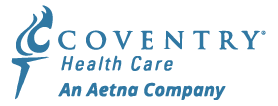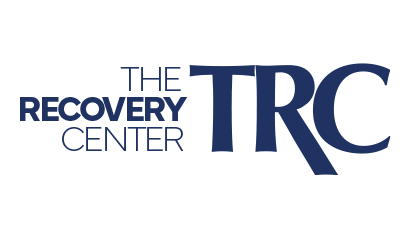HEALING IN THE MODERN ERA
DETOX
DETOX
HEALING IN THE MODERN AREA
GET HELP NOW
Withdrawal is potentially life threatening.
If you or a loved one is struggling with addiction, know that help is available. At The Recovery Center, we are here to support you on your journey to recovery. Please don’t hesitate to reach out to us for more information or to schedule an assessment.
WITHDRAWAL MANAGEMENT
WITHDRAWAL MANAGEMENT
Detoxification is a crucial step in the addiction recovery journey. It involves slowly tapering substances from a person’s body to minimize the side effects of withdrawal. Every person’s detox journey is unique, as it depends on the severity of their addiction and the substance they use.
Certified medical and health care professionals preside over each individuals detox treatment. These professionals are dedicated to providing the support and care they need during this challenging time. Our rehabilitation facility is comfortable and private, so they can focus on your recovery in a peaceful, confidential setting.
WITHDRAWAL MANAGEMENT
WITHDRAWAL MANAGEMENT
Detoxification, or “detox,” is a crucial step in the addiction recovery journey. It involves slowly tapering substances from a person’s body to minimize the side effects of withdrawal. Every person’s detox journey is unique, as it depends on the severity of their addiction and the substance they use. It is an important step in the recovery process, and most people cannot simply skip it.
Our medically supervised detox is run by certified medical professionals who are dedicated to providing the support and care you need during this challenging time. Our rehabilitation facility is comfortable and private, so you can focus on your recovery in a peaceful, confidential setting.
GET HELP NOW
Withdrawal is potentially life threatening.
If you or a loved one is struggling with addiction, know that help is available. At The Recovery Center, we are here to support you on your journey to recovery. Please don’t hesitate to reach out to us for more information or to schedule an assessment.
THE ROAD AHEAD
If you are considering detox, it is very important to be aware of the common symptoms of drug withdrawal. These can include physical symptoms such as tremors, vomiting, and sweating, as well as psychological symptoms such as anxiety and depression. These symptoms can vary in severity, and it is essential to have medical supervision to ensure your safety and comfort during the detox process.
Understanding Detox
At TRC, we help individuals begin their journey to recovery by removing substances from their bodies—like drugs and alcohol—through the detox process. This preparatory step is crucial to success in addiction treatment and frequently involves the use of medication to alleviate withdrawal symptoms and ensure the patient’s well-being and comfort.
The Importance of Medical Supervision During Detox
It is vital to have medical supervision during the detox process. At TRC, our trained medical professionals can closely monitor the patient’s physical and emotional health, administer medication to ease withdrawal symptoms, and provide support and guidance to assist the individual through this challenging time. Personalized treatment is an important part of the detox process, as it helps ensure that the patient’s specific needs are met and that they have the best chance of success.
The Importance of Customized Care in Detox
Everyone is unique, which is why it’s crucial to have a personalized treatment plan during detox. One of our experts will assess the patient’s individual needs and create a detox plan that is customized to their specific circumstances, taking into consideration factors such as the type of substance they are addicted to, the severity of their addiction, and their overall physical and mental health. This individualized approach to treatment helps ensure that the patient receives the care and support they need to succeed in their journey toward recovery.
Preparing for Detox
With the right support and direction, individuals can triumph over their addiction and embark on the path toward sustained recovery. It is essential to have a well-defined plan for post-detox care, such as participation in an addiction-therapy program or recovery program, to stay on the road to recovery.
There are steps individuals can take to set themselves up for success and make the journey more manageable, such as building a network of supportive loved ones, setting attainable objectives, and planning for care following detox. By taking these proactive measures, patients can increase their chances of achieving lasting recovery.
THE ROAD AHEAD
If you are considering detox, it is very important to be aware of the common symptoms of drug withdrawal. These can include physical symptoms such as tremors, vomiting, and sweating, as well as psychological symptoms such as anxiety and depression. These symptoms can vary in severity, and it is essential to have medical supervision to ensure your safety and comfort during the detox process.
Understanding Detox
At TRC, we help individuals begin their journey to recovery by removing substances from their bodies—like drugs and alcohol—through the detox process. This preparatory step is crucial to success in addiction treatment and frequently involves the use of medication to alleviate withdrawal symptoms and ensure the patient’s well-being and comfort.
The Importance of Medical Supervision During Detox
It is vital to have medical supervision during the detox process. At TRC, our trained medical professionals can closely monitor the patient’s physical and emotional health, administer medication to ease withdrawal symptoms, and provide support and guidance to assist the individual through this challenging time. Personalized treatment is an important part of the detox process, as it helps ensure that the patient’s specific needs are met and that they have the best chance of success.
The Importance of Customized Care in Detox
Everyone is unique, which is why it’s crucial to have a personalized treatment plan during detox. One of our experts will assess the patient’s individual needs and create a detox plan that is customized to their specific circumstances, taking into consideration factors such as the type of substance they are addicted to, the severity of their addiction, and their overall physical and mental health. This individualized approach to treatment helps ensure that the patient receives the care and support they need to succeed in their journey toward recovery.
Preparing for Detox
With the right support and direction, individuals can triumph over their addiction and embark on the path toward sustained recovery. It is essential to have a well-defined plan for post-detox care, such as participation in an addiction-therapy program or recovery program, to stay on the road to recovery.
There are steps individuals can take to set themselves up for success and make the journey more manageable, such as building a network of supportive loved ones, setting attainable objectives, and planning for care following detox. By taking these proactive measures, patients can increase their chances of achieving lasting recovery.
TRC was the place where I went to begin my healing, but little did I know that would be the place I would continue to go back to week after week to heal others.
- R. Oklahoma City, OK
ADMISSIONS
Our team is available to answer your questions and assist with elective admissions.
Call 405-525-2525 or visit us in person at 1215 NW 25th Street, Oklahoma City, Oklahoma. Your privacy is important to us, and all inquiries are held in strict confidence.
We work with most major insurance. If you do not see your insurance plan, call us! We are always adding plans and you may have out-of-network benefits on your plan.
ADMISSIONS
Our team is available to answer your questions and assist with elective admissions.
Call 405-525-2525 or visit us in person at 1215 NW 25th Street, Oklahoma City, Oklahoma. Your privacy is important to us, and all inquiries are held in strict confidence.
We work with most major insurance. If you do not see your insurance plan, call us! We are always adding plans and you may have out-of-network benefits on your plan.








